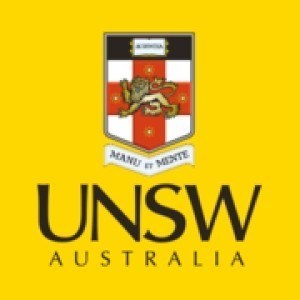Photos of university / #tcdglobal
The Bachelor of Arts in Linguistics at the University of Dublin offers students an in-depth exploration of human language, its structures, functions, and applications. This comprehensive programme is designed to provide a solid foundation in the core areas of linguistics, including phonetics, phonology, morphology, syntax, semantics, and pragmatics. Students will examine the ways in which language is acquired, used, and evolved across different societies and cultures, gaining insights into the complex relationships between language, thought, and social identity.
Throughout the course, students will be introduced to various theoretical frameworks and analytical tools essential for understanding linguistic phenomena. They will study the biological basis of speech production and perception, explore the diversity of world languages, and analyze language change over time. The programme emphasizes both linguistic theory and practical skills, enabling students to apply their knowledge in real-world contexts such as language teaching, translation, computational linguistics, and language policy.
The curriculum is designed to foster critical thinking, analytical skills, and effective communication. Students will engage in a range of learning activities, including lectures, seminars, and practical language projects. Additionally, opportunities for research and fieldwork are integrated into the programme, allowing students to investigate language phenomena firsthand and contribute to ongoing linguistic research at the university.
Graduates of the Linguistics programme are well-equipped to pursue careers in academia, linguistic research, translation, language teaching, and various industries that require expertise in language and communication. The University of Dublin's Department of Linguistics is renowned for its distinguished faculty and cutting-edge research facilities, providing an enriching academic environment for aspiring linguists. With a strong emphasis on interdisciplinary learning, the programme prepares students to understand and address language-related challenges in a diverse and interconnected world.
Core Modules:
* Describing Grammar
* Describing Meaning
* Describing the sounds of languages
* Laboratory phonetics and phonology
The elective courses may include:
* History and Globalisation of English
* Corpus Linguistics
* Technology, Language, and Communication
* Language Variation and Change
* Advanced Syntactic Theory
* Linguistic Pragmatics
* Bilingualism and the Maintenance of Irish
* Lexicology
The financing of the Bachelor of Arts in Linguistics at the University of Dublin is primarily through a combination of European and national funding sources, student tuition fees, and financial aid programs. The university offers several scholarships and bursaries designed to assist students in covering tuition costs and living expenses, which are awarded based on academic merit, financial need, and specific eligibility criteria. For domestic students, state-funded grants and student loan schemes are available, providing accessible options to finance their studies. International students enrolled in the programme may access specific scholarships dedicated to international applicants, as well as external funding sources such as government scholarships and private grants. The university’s fee structure is published annually and reflects the type of programme, with price variations for EU and non-EU students. Additionally, students can benefit from work-study opportunities and part-time employment schemes facilitated by the university, allowing them to supplement their income while pursuing their studies. The university also encourages students to explore external funding resources, including national and private sector grants, foreign government scholarships, and international organizations supporting education. Financial planning is advised for prospective students to ensure they are aware of the total costs involved, including tuition, accommodation, books, and living expenses. The university’s financial services offer guidance and support for students in managing payments and understanding available financial assistance. Overall, the financing options provided by the university aim to make a linguistic education accessible to a diverse range of students, fostering an inclusive academic environment and supporting students throughout their educational journey.
The Bachelor of Arts in Linguistics at the University of Dublin offers students an in-depth understanding of language structure, language history, and language use across different contexts. This programme is designed to provide a comprehensive overview of linguistic theories, phonetics, phonology, syntax, semantics, and sociolinguistics. Students are introduced to both theoretical and applied aspects of linguistics, equipping them with valuable analytical skills applicable in fields such as language technology, translation, language teaching, and research.
The curriculum emphasizes critical thinking and research skills through a combination of lectures, seminars, and project work. Students have the opportunity to explore diverse language phenomena, including language acquisition, language variation, and multilingualism. The programme also encourages engagement with contemporary issues such as language policy, language rights, and the impact of globalization on languages around the world.
Throughout their studies, students benefit from the university's renowned faculty, many of whom are experts in areas like phonetics, syntax, and language contact. The university provides access to modern linguistic laboratories and resources, facilitating practical experience in phonetic analysis and language documentation. Students are also encouraged to participate in internships, study abroad programmes, and language-focused research projects to enhance their academic and professional development.
Graduates of this programme are well-prepared for careers in linguistics research, language teaching, publishing, speech therapy, language technology, and international communication. They also acquire transferable skills in analysis, problem-solving, and intercultural communication, which are highly valued across various sectors. The programme's flexible structure allows students to tailor their electives and research projects according to their interests, fostering a personalised academic journey grounded in linguistic inquiry.
Overall, the Bachelor of Arts in Linguistics offers a challenging and rewarding education that combines theoretical foundations with practical applications, preparing graduates for diverse opportunities both within and outside academia. The university's rich cultural environment and collaborative academic community further enhance the learning experience, making this programme an excellent choice for students passionate about understanding languages and their role in human society.







